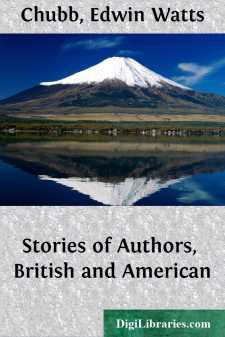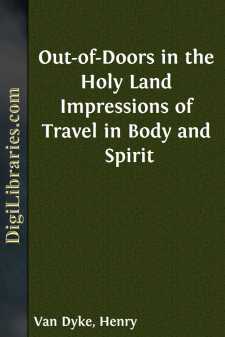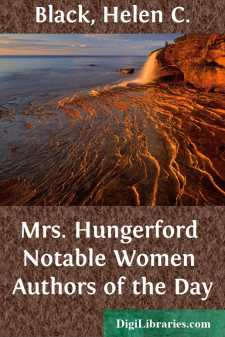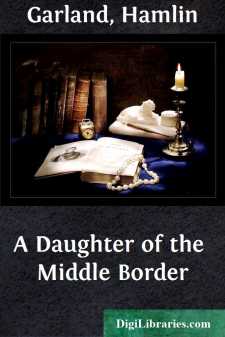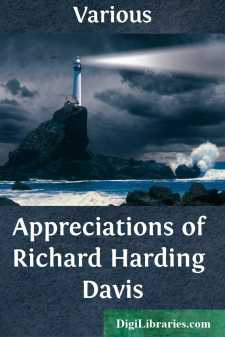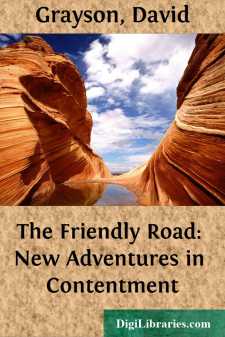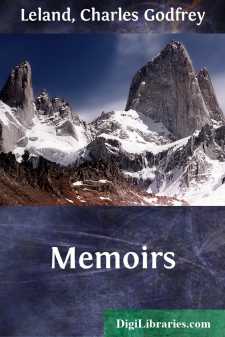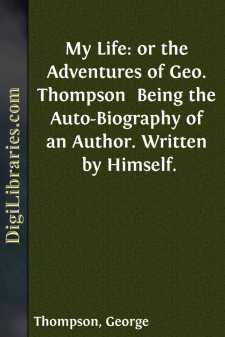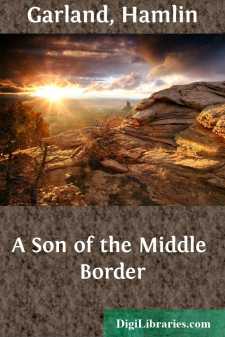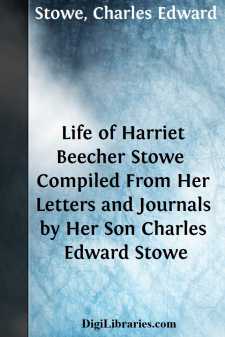Biography & Autobiography
- Adventurers & Explorers 15
- Artists, Architects, Photographers 16
- Business 2
- Composers & Musicians 14
- Criminals & Outlaws 5
- Editors, Journalists, Publishers 6
- Educators 1
- Entertainment & Performing Arts 3
- General 73
- Health, Exercise & Fitness 1
- Historians 3
- Historical 83
- Law Enforcement 1
- Lawyers & Judges 3
- Literary 147
- Medical 7
- Military 48
- Naturalists, Gardeners, Environmentalists 8
- Personal Memoirs & Diaries 226
- Philosophers 3
- Political 9
- Presidents & Heads of State 38
- Religious 38
- Rich & Famous 27
- Scientists 13
- Women 31
Biography & Autobiography Books
Sort by:
PREFACE The purpose of this book is to help in making literature and the makers of literature alive and interesting. Few schools have libraries including the bound volumes of the magazines of the past quarter of a century. But what an aid such a collection is to the appreciation of literature! The dignified and abbreviated history of literature cannot indulge in such delightful gossip as is found in...
more...
by:
Henry Van Dyke
PREFACE For a long time, in the hopefulness and confidence of youth, I dreamed of going to Palestine. But that dream was denied, for want of money and leisure. Then, for a long time, in the hardening strain of early manhood, I was afraid to go to Palestine, lest the journey should prove a disenchantment, and some of my religious beliefs be rudely shaken, perhaps destroyed. But that fear was removed by...
more...
by:
Helen C. Black
It is well worth encountering the perils of the sea, even in the middle of winter, and in the teeth of a north-east wind, if only to experience the absolute comfort and ease with which, in these space-annihilating days, the once-dreaded journey from England to the Emerald Isle can be made. You have resolved to accept a hospitable invitation from Mrs. Hungerford, the well-known author of Molly Bawn,...
more...
by:
Hamlin Garland
—I— To My New Readers In the summer of 1893, after nine years of hard but happy literary life in Boston and New York, I decided to surrender my residence in the East and reëstablish my home in the West, a decision which seemed to be—as it was—a most important event in my career. This change of headquarters was due not to a diminishing love for New England, but to a deepening desire to be near...
more...
by:
Various
He was almost too good to be true. In addition, the gods loved him, and so he had to die young. Some people think that a man of fifty-two is middle-aged. But if R. H. D. had lived to be a hundred, he would never have grown old. It is not generally known that the name of his other brother was Peter Pan. Within the year we have played at pirates together, at the taking of sperm whales; and we have...
more...
by:
David Grayson
CHAPTER I. I LEAVE MY FARM "Is it so small a thingTo have enjoyed the sun,To have lived light in spring?" It is eight o'clock of a sunny spring morning. I have been on the road for almost three hours. At five I left the town of Holt, before six I had crossed the railroad at a place called Martin's Landing, and an hour ago, at seven, I could see in the distance the spires of...
more...
It happened once in Boston, in the year 1861 or 1862, that I was at a dinner of the Atlantic Club, such as was held every Saturday, when the question was raised as to whether any man had ever written a complete and candid autobiography. Emerson, who was seated by me at the right, suggested the “Confessions” of Rousseau. I objected that it was full of untruths, and that for plain candour it was...
more...
by:
George Thompson
In which the author defineth his position. It having become the fashion of distinguished novelists to write their own lives—or, in other words, to blow their own trumpets,—the author of these pages is induced, at the solicitation of numerous friends, whose bumps of inquisitiveness are strongly developed, to present his auto-biography to the public—in so doing which, he but follows the example of...
more...
by:
Hamlin Garland
Home from the War All of this universe known to me in the year 1864 was bounded by the wooded hills of a little Wisconsin coulee, and its center was the cottage in which my mother was living alone—my father was in the war. As I project myself back into that mystical age, half lights cover most of the valley. The road before our doorstone begins and ends in vague obscurity—and Granma Green's...
more...
Harriet Beecher (Stowe) was born June 14, 1811, in the characteristic New England town of Litchfield, Conn. Her father was the Rev. Dr. Lyman Beecher, a distinguished Calvinistic divine, her mother Roxanna Foote, his first wife. The little new-comer was ushered into a household of happy, healthy children, and found five brothers and sisters awaiting her. The eldest was Catherine, born September 6,...
more...


